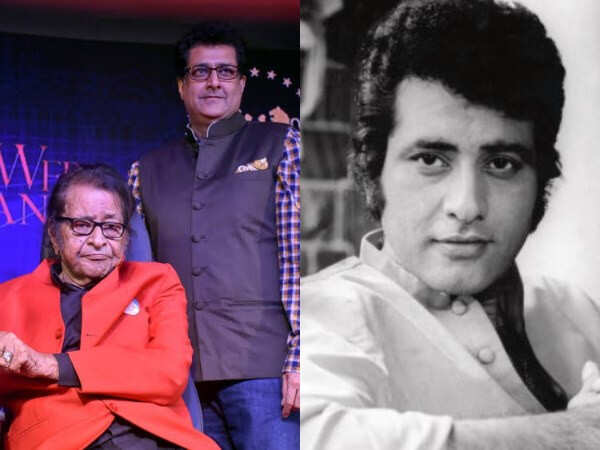Exclusive: Kunal Goswami Pays Tribute to Father and Legendary Actor Manoj Kumar
As a 10-year-old, he witnessed the tearing apart of India. But it didn’t leave him bitter. In fact, the Partition fuelled patriotism in him. Consequently, when he became an actor, Manoj Kumar broke away from romantic soirees to brandish his brand of nationalism. Shaheed his homage to martyr Bhagat Singh, Upkar his crusade against brain-drain vis a vis the rural-urban scenario, Purab Aur Paschim his extolling of the East… are all narratives of idealism. Equally discerning is the disenchantment in Roti Kapda Aur Makaan, the song Mehengayi maar gayi leaving the then power centres embarrassed. Just as is the distress of the marginalized in Shor. Kranti, an ensemble extravaganza, is an ode to the freedom struggle. Kumar’s commitment to the common man’s issues of poverty, unemployment, inequality… along with colonial oppression remains unquestionable. The sobriquet ‘Bharat’ made him synonymous with the land he represented and romanticised.
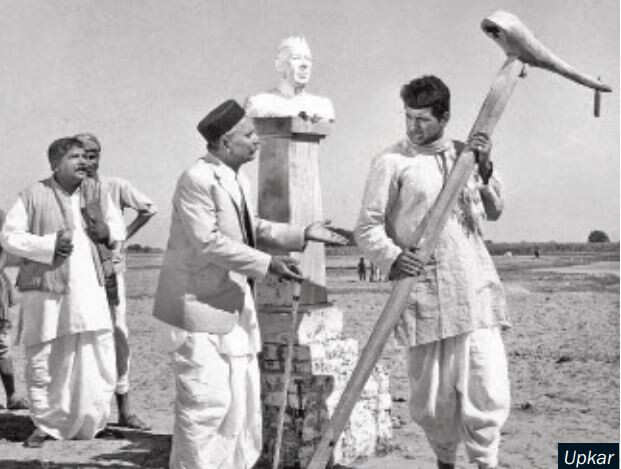
Technically, the filmmaker’s signature style was the ‘Manoj Kumar shot,’ where the camera zoomed in and out from the actor’s faces. While Kumar’s mirror shots were ‘reflections’ of fantasy, his brooding silences and his face covered with his hand… became part of his idiomatic expression. And even as the music and message of his films deify his image of a flag-waver, Madan Mohan’s elegiac Lag jaa gale filmed on Sadhana and him (Woh Kaun Thi?) has entrenched Kumar in the cinematic consciousness forever. Here, son and actor Kunal Goswami shares insights about his legendary father, who passed away on 4 April this year… Read on…
PAIN OF PARTITION
Dad’s original name was Harikrishan Giri Goswami. He was born in 1937 in Abbottabad, now in Pakistan. The family migrated to Delhi post-Partition. Many of his family members were killed during the Partition. His father’s younger brother was killed in the train while they were coming to India. As a child he witnessed the trauma. They were all put up at a refugee camp in Kingsway Camp, Old Delhi. But it only intensified his feelings of patriotism.
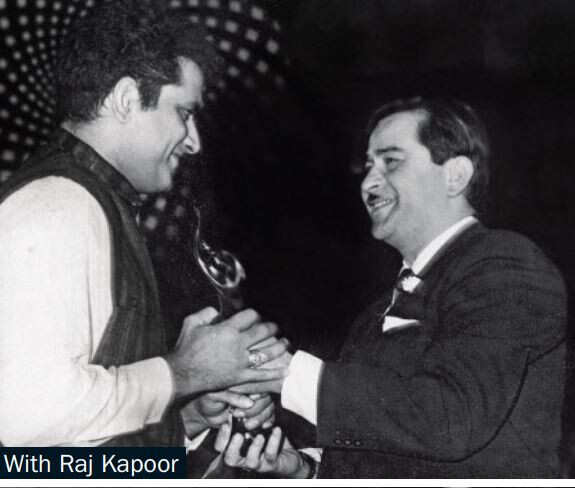
When the visas to visit Pakistan to watch the cricket matches reopened in the ’70s, Dad jumped on the occasion. Dad, Mom (Shashi Goswami) and I travelled to Pakistan. Dad only travelled by train as he’d developed a fear of air travel. We took the train to Delhi and then from Delhi to Amritsar. From there we drove to Lahore through the Attari-Wagah border. He wanted to visit the place he was born. He remembered his house was near a dargah. He said we’d have to walk up to it as the lane was narrow and the car wouldn’t be able to get in. Dad remembered it all minutely.
CINEMA CALLING
Dad considered the medium of cinema as a great tool of expression. Initially, he came here as a writer. He took up a monthly job at Ranjit Studio. There he would ghost write along with a panel of writers. He used to write the script and dialogue in Urdu. He was paid Rs 10-Rs 11 per scene. He got acquainted with the industry people. Dilip Kumar saab was his inspiration. When he got a chance to act, he took on the name ‘Manoj’ it being Dilip saab’s name in Shabnam (1949).
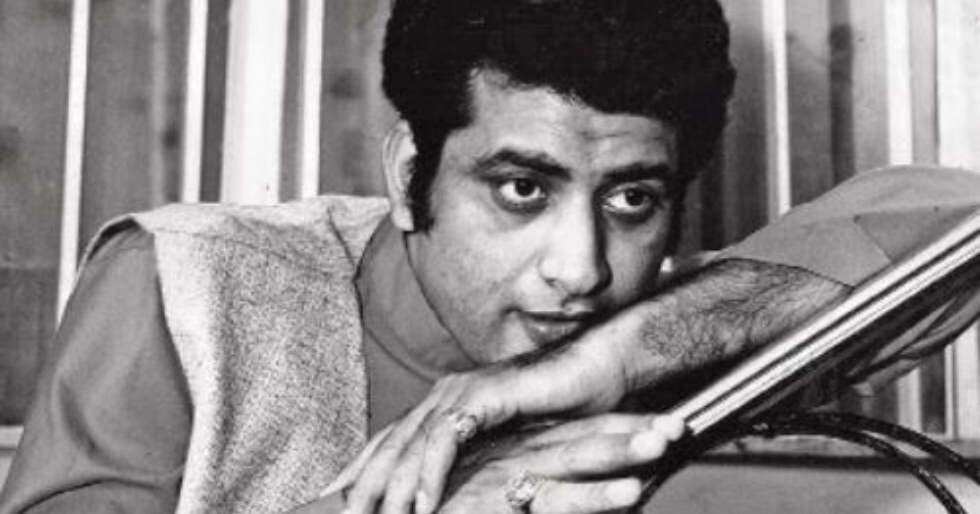
Producer Lekhraj Bhakri, a relative, gave Dad his first break as a junior artiste in Fashion (1957). Sahara, Chand, Honeymoon, Kaanch Ki Gudiya (1958-1961)… followed. His breakthrough came with Vijay Bhatt’s Hariyali Aur Rasta (1962) opposite Mala Sinhaji. This was followed by Dr. Vidya, Grahasti and Phoolon Ki Sej (1962-1964). Dad shared a great rapport with director Raj Khoslaji. The song Lag jaa gale from the mystery thriller Woh Kaun Thi? (1964) receives so much love till date. Surprisingly, it was initially rejected by Rajji. It took Dad three days to convince him to include it. Naina barse rimjhim rimjhim too remains timeless.
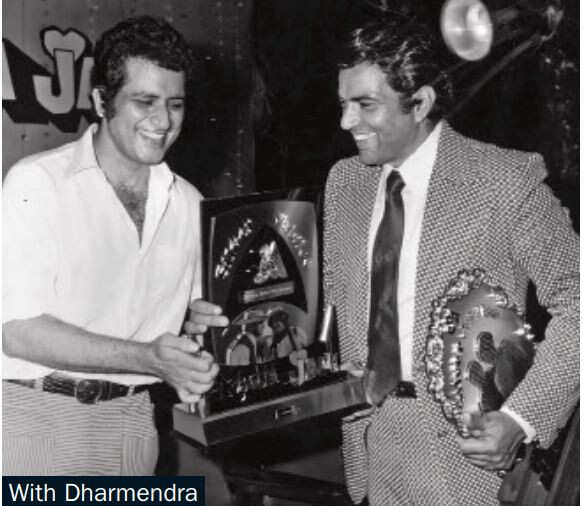
As Dad had a flair for writing, directors often made him rewrite the scenes. Then they’d even ask him to shoot the scenes. That way he ghost-directed bits of films including Woh Kaun Thi?, Gumnaam, Aadmi, Pehchan, Be-Imaan, Sanyasi, Dus Numbri… between the ’60s – ’80s.
PATRIOT UNVEILED
Shaheed (directed by S.Ram Sharma in 1965) based on the life of freedom martyr Bhagat Singh resonated Dad’s patriotism. He contributed to the writing and even ghost-directed it. He invited the late Prime Minister, Lal Bahdur Shastriji for the premiere. Shastriji said he had only half an hour to spare. But he sat through the whole film. Dad visited Bhagat Singh’s village and had brought along his mother (late Vidyavati) for the premiere. Turing emotional on watching the film she said, “Tu toh mera Bhagat hai.”
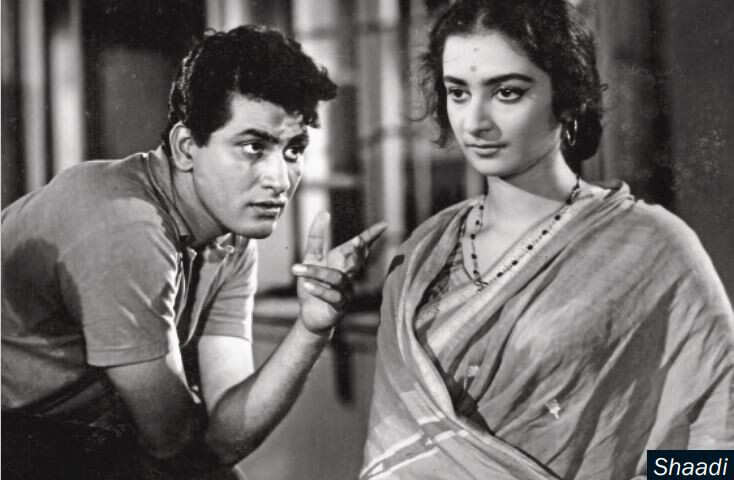
The same year Himalay Ki God Mein opposite Mala Sinhaji, the thriller Gumnaam with Nandaji and Do Badan (1966) with Asha Parekhji consolidated his stardom. After the Indo-Pakistan war of 1965, Lal Bahadur Shastriji asked Dad to make a film on the slogan ‘Jai Jawan Jai Kissan’. That’s how his directorial debut Upkar (1967) came about. Upkaar was a game-changer. It changed Pran saab’s image from a villain to a sympathetic character. The song Kasme vaade pyaar wafa filmed on him gives you gooseflesh. Mere desh ki dharti… is like a second anthem. Dad said, “Yeh toh zindagi bhar bajta rahega.” The film won Dad the National Award for Second Best Feature Film and his first Filmfare Best Director Award. Dad also did a spate of romantic films with Waheeda Rehman including Patthar Ke Sanam (1967) Neel Kamal and Aadmi (both in 1968), the latter having Dilip Kumar in the lead.
SUPER ’70s
Dad returned to patriotic themes in 1970 with Purab Aur Paschim, which contrasted life in the East and West. He created the revolving stage simulating a London restaurant in Mehboob Studios for the song Hai preet jahan ki reet. Yaadgaar and Pehchan in the same year were well-received. Shor (1972), which he produced, directed and wrote, was a blockbuster. It featured the iconic song Ek pyar ka nagma hai. While Shor won him the Filmfare Award for Best Editing, the same year Sohanlal Kanwar’s Be-Imaan (traces the protagonist’s descent into crime) won him the Filmfare Best Actor Award.
His directorial Roti Kapada Aur Makaan (1974) had an ensemble cast comprising Shashi Kapoor, Amitabh Bachchan, Zeenat Aman and Moushmi Chatterjee. Dad had an ear for music. His contribution to the music of his films is well-known. After Hai hai ye majboori ki was recorded, unhappy with it, Dad walked across to Laxmikantji’s (Laxmikant-Pyarelal ) house the same evening to express his reservations. They scrapped the song and recorded a new one with changes. He’d always sit in the recording room during the music sessions. In fact, he wrote the lyrics of so many songs though he never took credit for them. Incidentally, Mitwa tere bina laage naa re jiyaraa from the song Zindagi ki na toote ladi (Kranti 1981), was his input.
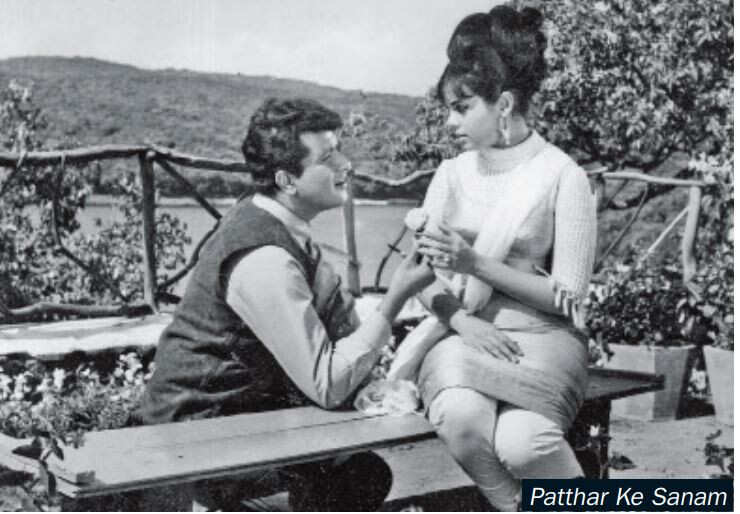
KRANTI HAPPENS
After Sanyasi (1975) and Dus Numbri (1976), Dad starred with Hema Maliniji in Kranti and Santosh (1989). Kranti was one of the most expensive films at that time. It had an assembly line-up including his idol Dilip saab. The canvas of the subject being huge, the first rush cut was five-and-a-half-hour long. But Dad was a brilliant editor. You need guts to throw away portions you have created. You’re throwing out your blood and sweat.
When Kranti released I was in Mumbai. Dad and Mom were in Delhi for the premiere. I’d visit the theatres to gauge public reaction. In the first two- three days of Kranti, people walked out from the theatres because the film was longer than usual. We informed him about it. After the third day he said, “Stop calling me. I’m confident about my film.” He was right. In the coming days we saw the same faces coming back to see the film again. The ‘emotional connect’ had pulled them back. Dad’s films Kalyug Aur Ramayan, Santosh, Clerk and Deshwasi (between 1987-1991) didn’t do well but they adhered to his socialist themes. Even Jai Hind (1999) in which he directed me had a patriotic theme.
TRIBUTE TO SAI BABA
A significant contribution of Dad has been the film Shirdi Ke Sai Baba (1977). He was a fervent devotee of Sai Baba. In his old films like Patthar Ke Sanam, Dad can be seen wearing Sai Baba’s silver ring. The road on which the temple stands in Shirdi has been named Manoj Kumar Goswami Marg on the insistence of the people there. Sai Baba used to be carried in a palki during his lifetime. Dad and Mom were similarly taken in a flower-studded palki around the temple during the naming ceremony of the road.
The film somewhere changed the small-town of Shirdi to what it’s today. When Dad passed away, the first call we received was from the Shirdi temple. They sent across the chadar and other religious items, all of which went along with Dad.
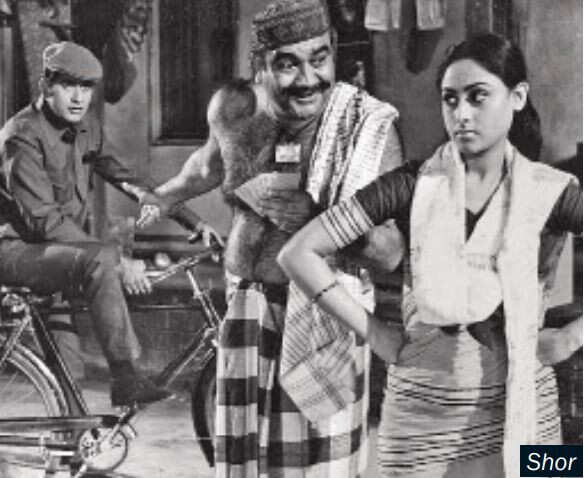
THE PERSON
Dad was not someone who attended or hosted parties. He was focused on his work. After that he enjoyed being with the family. We realised Dad’s stardom during his birthdays when the house would be lined up with bouquets. There would be a havan and a huge lunch for his peers. He cherished his friendships. He regularly worked with friends Prem Nath, Pran, Prem Chopra, Madan Puri and Kamini Kaushal. Dharmaji (Dharmendra) and he struggled together during the mid-50s. In fact, when a disappointed Dharamji was leaving Mumbai, it was Dad who pulled him back. Much as in a film, Dad ran to the station, searched every compartment and finally found him. He begged him not to leave. He said, “I’ll get you work. Come and stay with me.”
Those days Dad was staying in a chawl in Shivaji Park. The canteen where he ate, the iron-wallah… everything was being managed on credit. He enrolled Dharamji on the credit list too. Every month he paid both their bills. He’d buy clothes for Dharamji for his auditions. He struck a deal with Dharamji that whenever there was an audition, Dharamji would try his luck first. If he couldn’t make it, only then Dad would give the test.
Dad looked up to Dilip saab. It’s said that Dad adopted Dilip saab’s mannerisms. But honestly, there’s a lot of Dilip Kumar in most of the actors of those times. The expressions and voice modulation, the pauses… all this came from the ‘Dilip Kumar School of acting’. Dad’s rapport with his heroines was good. Nandaji didn’t charge a penny for her special role in Shor. When he wanted to sign Saira Banuji for Purab Aur Paschim, he first sought permission from Dilip saab, who was touched. Dad presented his heroines attractively. But his stance of not ‘touching’ the heroine during the romantic scenes baffled many. He was ‘Bharat’. He wanted to portray the character as ‘pure’. The romance between Nandaji and him in Shor is beautiful but without physical proximity.
His signature gesture of his hand covering the face is well-known. He got offended once… (reportedly when Shah Rukh Khan parodied it in Om Shanti Om 2007), which everyone knows about. He was angry. While people go to court for defamation asking 100 crores, Dad said he’d sue the makers for one rupee. They apologised and the matter was settled.
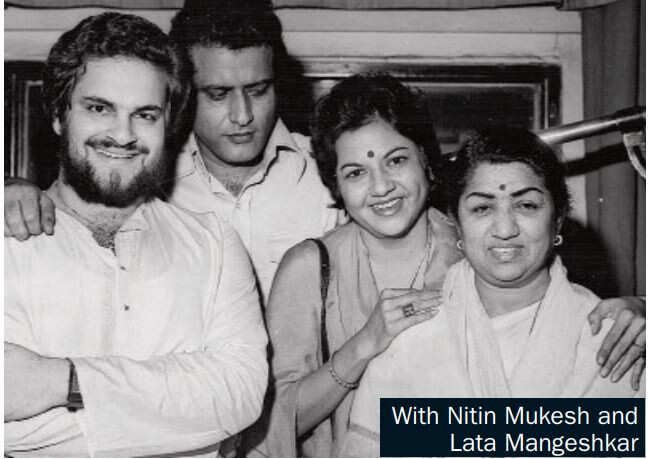
THE FAREWELL
Dad’s favourite quote was, “Those who are destined to be hanged cannot be crowned.” He believed that fate plays its part. But you have to keep moving, keep trying. He suffered a triple organ failure in 2015. It just kept getting complicated from then on. The side effects included edema, fluid in the lungs… The doctors said perhaps it was homeopathy, something that Dad had knowledge of and practised, which helped him pull along for years. He believed ‘I will survive’.
Dad was ecstatic when he got to see his great great-granddaughter, my brother Vishal’s (Goswami) granddaughter on Face-time. They live in Delhi. That would bring a big smile on his face even though he was in the ICU in hospital. He suffered much during the last few months. He’d say, “It’s looking difficult now.” Being bedridden for so long, it wasn’t easy. He had become frail. He was a few months from 88. Towards the end he’d stopped talking. His eyes would helplessly smile. They seemed to say, “There’s not much I can do. There’s not much you can do.” But his work has done much for his memory to outlive generations.
Also Read: Exclusive: “Manoj Kumar Understood The Pulse Of The Nation” – Waheeda Rehman





